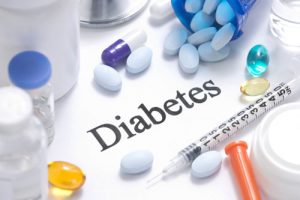Caregivers Guide To Diabetes
If you’re a caregiver, chances are you are taking care of aging or elderly loved ones, helping them monitor their medications and making note of any changes in their physical or mental health. One of the changes you need to be aware of is the potential for developing diabetes as this is a very real possibility as we age.

Understanding diabetes
There are two types of diabetes:
- Type 1 – also known as juvenile or insulin-dependent diabetes.
- Type 2 – also known as adult onset or noninsulin dependent diabetes
One of the main differences in the types is that in some cases, people with Type 2 diabetes can delay or halt the progression with diet and exercise. This is especially true if the individual is overweight and/or lives a sedentary lifestyle.
Symptoms of diabetes include:
- Increases in appetite
- Cuts and bruises that are slow to heal
- Numbness or tingling in hands and feet
- Unusual or extreme thirst
- Tender gums
- Unusual weight loss
- Fruity or sweet breath
- Frequent urination
- Changes in vision
- Unusual lethargy
If you notice any of these in yourself or in a family member, a visit to the doctor is in order. Oftentimes these symptoms start but they don’t trigger the thought that there might be something wrong, including diabetes.
When a visit to the doctor is scheduled, you may walk out with a diabetes diagnosis which means a new schedule including monitoring of blood sugar levels and other important care.
Diabetes care
How can you help your aging loved one navigate this new diagnosis? Here are a few ways:
- They will need to check their blood sugar regularly. They should make note of when they check it, record the blood sugar level, what they had to eat prior to checking it and what kind of exercise they are getting. Record all of this in a notebook or look for an app for a tablet or cell phone that help keep track of all this information. Ask them to track any other changes they may be experiencing as well.
- If insulin or other oral medications are needed, it’s good to keep track of how they feel before and after taking it. You may even want to set an alarm on their mobile device to remind them to take it especially as this new habit is beginning.
- Do they need to be on a special diet? This might be a good time to research healthy meals for diabetics online or to buy a cookbook that includes easy meals.
- Urge them to exercise, even if it’s a walk around the house following a meal.
Because hypoglycemia is a serious possibility for diabetics, you may want to consider a medical alert system. Until blood sugar monitoring is brought under control, there is a very real potential for hypo- or hyperglycemia to occur – blood sugar that is too high or too low and this can lead to confusion, fainting or other medical emergencies that could require assistance from emergency medical personnel.
FREE BROCHURE Today!
